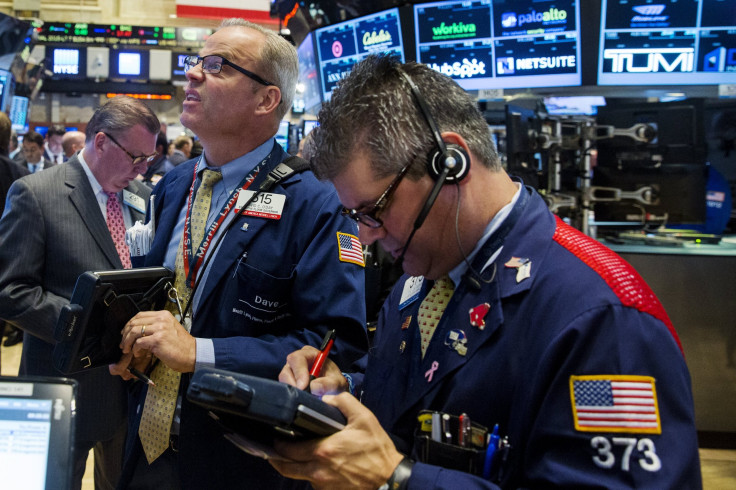Dow Jones Industrial Average Leaps 100 Points As UnitedHealth Group Inc (UNH) Gains Nearly 2%

U.S. stocks traded higher Tuesday, with the Dow jumping 100 points, rebounding after sharp losses a day earlier. Concerns regarding Greece’s debt crisis were offset by anticipation ahead of the U.S. Federal Reserve’s two-day policy meeting.
Tuesday’s gains were driven by the consumer goods and services sector.
The Dow Jones Industrial Average (INDEXDJX:.DJI) gained 103.93 points, or 0.5 percent, to 17,891.36. The Standard & Poor’s 500 index (INDEXNASDAQ:.IXIC) added 6.5 points, or 0.31 percent, to 2,090.88. The Nasdaq composite (INDEXSP:.INX) rose 10.82 points, or 0.22 percent, to 5,040.70.
U.S. health insurer UnitedHealth Group Inc. (NYSE:UNH) led the Dow higher Tuesday, gaining 1.7 percent. Athletic apparel retailer Nike Inc. (NYSE:NKE), beverage company The Coca-Cola Co. (NYSE:KO) and consumer packaged goods company Procter & Gamble Co. (NYSE:PG) all rose more than 1 percent.
The blue-chip index erased all gains for the year a day earlier after debt negotiations between Greece and its creditors stalled, sparking fears Athens will default. “If Greece does default, the focus may soon move on to the far more serious issue of [a] potential Greek exit from the eurozone itself,” Jonathan Loynes, chief European economist at Capital Economics, said in a research note.
The Federal Reserve kicked off its two-day policy meeting Tuesday, followed by a statement from the Federal Open Market Committee on Wednesday. Market professionals will look for clues to the timing of the central bank’s interest rate hike, which most economists anticipate will happen in September.
Data released Tuesday showed U.S. housing starts, a critical indicator of U.S. economic strength, fell in May after surging the prior month as groundbreaking on new homes dropped 11.1 percent to a seasonally adjusted annual pace of 1.04 million units, the Commerce Department said Tuesday.
However, permits for future construction leaped to a near eight-year high as permits for future home construction rose 11.8 percent to a 1.28 million-unit rate, the highest since August 2007.
Although home construction has been choppy since the recession, groundbreaking on new homes surged more than 20 percent in April to the best pace since November 2007, signaling steady progress.
Even though housing starts fell somewhat in May, that was expected given the very strong April, said Stuart Hoffman, chief economist at PNC Financial Services Group. “Starts are still trending higher, and combined with the big jump in permits in May points to further gains in homebuilding over the next few months,” Hoffman said in a research note Tuesday.
© Copyright IBTimes 2024. All rights reserved.












